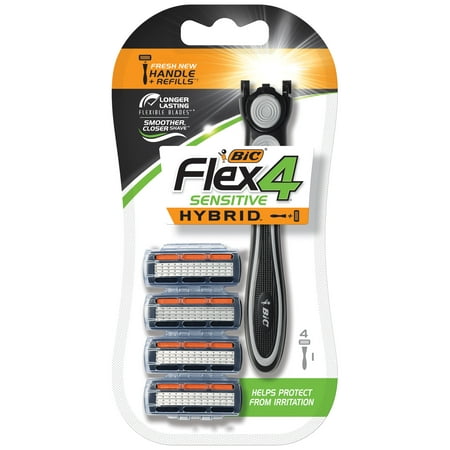300 Derby Professional Single Edge Razor Blades with Classic Samurai Barber Straight Edge Razor
Experience a clean, close and comfortable shave just like the one you enjoy at the barber shop with these Classic Samurai Razor with Blades. These are made of a high-quality, non-corrosive material and easy to use. The stainless steel straight edge barber razor has an easy flip open/close design and fits all straight razors. The package includes three boxes containing 100 blades each, individually wrapped in wax to protect the blades from damage. 300 Derby Single Edge Razor Blades with Classic Samurai Straight Razor:




Single edge razor blades300-count packProfessional-gradeProduces a clean, close and comfortable shaveEliminates the need for splitting double-edge razor blades Each box contains 100 blades, individually wrapped in wax paperFits all straight razorsPackage includes a classic Samurai straight razor
Year 300 (CCC) was a leap year starting on Monday (link will display the full calendar) of the Julian calendar. At the time, it was known as the Year of the Consulship of Constantius and Valerius (or, less frequently, year 1053 Ab urbe condita). The denomination 300 for this year has been used since the early Middle Ages / Medieval period, when the Latin language term / abbreviation "Anno Domini" ("In the year of Our Lord") for the calendar era became the prevalent universal / worldwide method for naming and numbering years. First beginning in Europe at the end of the Roman Empire (after the split of the Western Roman Empire and Eastern Roman Empire (later Byzantine Empire) in the early Middle Ages / Medieval period.
Then the Christian-oriented dating system then spreading west across the Atlantic Ocean with the Western European explorers and religious faith to the continents of the Americas of the Western Hemisphere, then through the simultaneous movement of the various Christian churches, and Europeans along sea trading routes with the military / political / economic / social influences of Colonialism / Imperialism spread worldwide to Africa, Asia and Australia / Oceania.
A barber is a person whose occupation is mainly to cut, dress, groom, style and shave hair or beards. A barber's place of work is known as a barbershop or the barber's. Barbershops have been noted places of social interaction and public discourse since at least classical antiquity. In some instances, barbershops were also public forums. They were the locations of open debates, voicing public concerns, and engaging citizens in discussions about contemporary issues.
In previous times, barbers (known as barber surgeons) also performed surgery and dentistry. With the development of safety razors and the decreasing prevalence of beards in Anglophonic cultures, most barbers now specialize in cutting men's scalp hair as opposed to facial hair.
A classic is an outstanding example of a particular style; something of lasting worth or with a timeless quality; of the first or highest quality, class, or rank – something that exemplifies its class. The word can be an adjective (a classic car) or a noun (a classic of English literature). It denotes a particular quality in art, architecture, literature, design, technology, or other cultural artifacts. In commerce, products are named 'classic' to denote a long-standing popular version or model, to distinguish it from a newer variety. Classic is used to describe many major, long-standing sporting events. Colloquially, an everyday occurrence (e.g. a joke or mishap) may be described in some dialects of English as 'an absolute classic'.
"Classic" should not be confused with classical, which refers specifically to certain cultural styles, especially in music and architecture: styles generally taking inspiration from the Classical tradition, hence classicism.
Derby ( DAR-bee) is a city and unitary authority area on the River Derwent in Derbyshire, England. Derbyshire is named after Derby, which was its original county town. As a unitary authority, Derby is administratively independent from Derbyshire County Council. The population of Derby is 263,490 (2022).
The Romans established the town of Derventio, which was later captured by the Anglo-Saxons and then by the Vikings who made Djúra-bý one of the Five Boroughs of the Danelaw. Initially a market town, Derby grew rapidly in the industrial era and was home to Lombe's Mill, an early British factory and it contains the southern part of the Derwent Valley Mills World Heritage Site. With the arrival of the railways in the 19th century, Derby became a centre of the British rail industry. Despite having a cathedral since 1927, Derby did not gain city status until 1977.
Derby is a centre for advanced transport manufacturing. It is home to engine manufacturer Rolls-Royce and Alstom (formerly Bombardier Transportation) has a production facility at the Derby Litchurch Lane Works; Toyota's UK headquarters is located in the south-west of the city at Burnaston.
A professional is a member of a profession or any person who works in a specified professional activity. The term also describes the standards of education and training that prepare members of the profession with the particular knowledge and skills necessary to perform their specific role within that profession. In addition, most professionals are subject to strict codes of conduct, enshrining rigorous ethical and moral obligations. Professional standards of practice and ethics for a particular field are typically agreed upon and maintained through widely recognized professional associations, such as the IEEE. Some definitions of "professional" limit this term to those professions that serve some important aspect of public interest and the general good of society.
In some cultures, the term is used as shorthand to describe a particular social stratum of well-educated workers who enjoy considerable work autonomy and who are commonly engaged in creative and intellectually challenging work.
A razor is a bladed tool primarily used in the removal of body hair through the act of shaving. Kinds of razors include straight razors, safety razors, disposable razors, and electric razors.
While the razor has been in existence since before the Bronze Age (the oldest razor-like object has been dated to 18,000 BC), the most common types of razors currently used are the safety razor and the electric razor.
Samurai (侍) or bushi (武士, [bɯ.ɕi]) were members of the warrior class in Japan. They were originally provincial warriors who served the Kuge and imperial court in the late 12th century, although it is debated when they became a class. These warrior eventually came to play a major political role until their abolition in the late 1870s during the Meiji era.
In the Heian period, powerful regional clans were relied on to put down rebellions. After power struggles, the Taira clan defeated the Minamoto clan in 1160. After the Minamoto defeated the Taira in 1185, Minamoto no Yoritomo established the Kamakura shogunate, a parallel government that did not surplant the imperial court. The warriors who served the Shogunate were called gokenin, landholding warriors whose retainers were called samurai. Gokenin were regulated by the Samurai-dokoro.
During the Sengoku Period, the term was vague and some samurai owned land, others were retainers or mercenaries. Many served as retainers to lords (including daimyo). There was a great increase in the number of men who styled themselves samurai by virtue of bearing arms. During the Edo period, 1603 to 1868, they were mainly the stewards and chamberlains of the daimyo estates, roles they had also filled in the past. During the Edo period, they came to represent a hereditary class. On the other hand, from the mid-Edo period, chōnin (townsman) and farmers could be promoted to the samurai class by being adopted into gokenin families or by serving in daikan offices, and low-ranking samurai could be transferred to lower social classes, such as chōnin, by changing jobs.
In the 1870s, samurai families comprised 5% of the population. As modern militaries emerged in the 19th century, the samurai were rendered increasingly obsolete and very expensive to maintain compared to the average conscript soldier. The Meiji Restoration formally abolished the status, and most former samurai became Shizoku. This allowed them to move into professional and entrepreneurial roles.
With or WITH may refer to:
- With, a preposition in English
- Carl Johannes With (1877–1923), Danish doctor and arachnologist
- With (character), a character in D. N. Angel
- With (novel), a novel by Donald Harrington
- With (album), a 2014 album by TVXQ
- With (EP), a 2021 EP by Nam Woo-hyun





Reviews
There are no reviews yet.